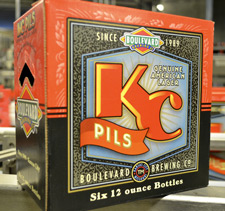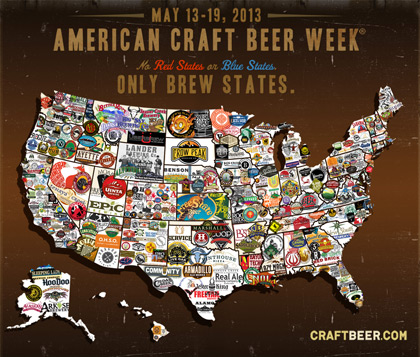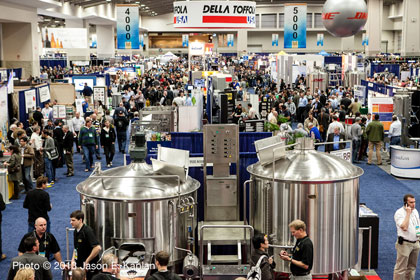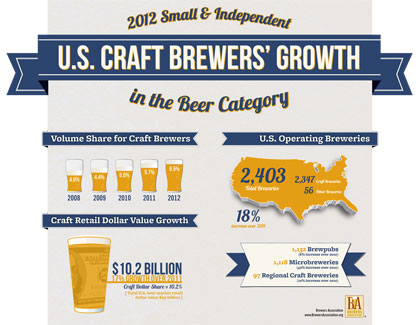Imperial Smoked Porter is the second in Deschutes Brewery’s Class of ’88 collaboration series, which celebrates the 25th anniversary of craft breweries around the country that were founded in 1988. Deschutes and Great Lakes Brewing developed the recipe together, then made versions at their respective breweries. Their year-round porters, Deschutes Black Butte and Great Lakes Edmund Fitzgerald, are among the most highly regarded in the country.
The imperial collaboration is 9.5% ABV, with 50 bitterness units (IBU). The two breweries both distribute in Minnesota and Illinois, so those are the places to go for side-by-side tastings. Meanwhile the best way learn about the beer is this video.
– Firestone Walker Brewing used traditional German ingredients and West Coast dry-hopping technique to create Pivo Pils (5.3% ABV, 40 IBU). “Lighter beer styles like pilsner have been hijacked by industrial lager beer in the United States, and it’s time for craft brewers to take it back,” brewmaster Matt Brynildson said.
“A lot of pilsners have the malt element down, as well as the dryness and drinkability, and even the bitterness — but they lack hop aroma,” Brynildson said. Pivo Pils is brimming with aroma. He said he took inspiration from Birrificio Italiano’s Tipo Pils. “Ever since I first tasted it, I’ve been dreaming about making a dry-hopped pilsner.”
– O’Fallon Brewery in Missouri has launched a rotating series of 4-pack 12-ounce beers this week called the Brewer’s Stash. The first beer in the series, Sticke It To The Man, is a darker, hoppier, 7.5% ABV version of the traditional Dusseldorf Alt style, according to the St. Charles County-based brewery. “The beer has a medium to full body, notes of caramel and toasted, nutty malt complemented with floral German Noble hops,” O’Fallon brewmaster Brian Owens said.
– New Belgium Brewing’s newest Lips of Faith beers are now available: Paardebloem, the latest collaboration with Red Rock Brewing in Salt Lake City, and Pluot. Paardebloem brings together a diverse set of ingredients ranging from peach juice to dandelion greens. It blends Brettanomyces with New Belgium’s house Belgian ale yeast, and includes a touch of wood-aged sour beer and Grains of Paradise. Paardebloem pours a light, hazy gold and is 9% ABV. Pluot is a subtly sweet ale made from pluot juice, which is a hybrid of a plum and an apricot. Pluot is light golden and 10% ABV, delivering fruity aromas and distinct esters. It is also created with house Belgian ale yeast and Brettanomyces, bringing a hint of spice and a malty backbone.

 Boulevard Brewing Company in Kansas City has renamed Boulevard Pilsner, put it in a new package and promised Kansas City residents it will share 10% of sales of the new KC Pils.
Boulevard Brewing Company in Kansas City has renamed Boulevard Pilsner, put it in a new package and promised Kansas City residents it will share 10% of sales of the new KC Pils.

